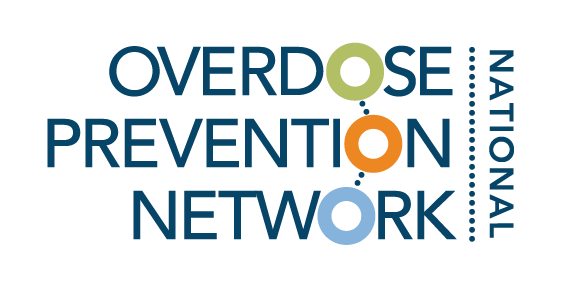
Resource Library
Toolkits, guides, and other resources vetted by experts in overdose prevention.
Filter by category and tags, or search by keyword (ex. COVID-19, harm reduction).
Let's Talk Marin
RxSafe Marin is committed to supporting youth and listening to youth voices. They are involved in several youth initiatives, including partnering with other community coalitions to distribute Let’s Talk, a resource for parents and teens to begin navigating conversations about substance use.
To Combat Meth, California Will Try A Bold Treatment: Pay Drug Users To Stop Using
This article describes how California is taking an unusual approach to tackling the rising rates of fatal drug overdoses: paying drug users not to use drugs.
California Opioid Overdose Surveillance Dashboard
This dashboard and data is the result of ongoing collaboration between the California Department of Public Health (CDPH), Office of Statewide Health Planning and Development (OSHPD), Department of Justice, and the California Health Care Foundation.
Law Enforcement's Role in Tackling the Opioid Epidemic
This video's purpose is to increase awareness and reduce stigma surrounding substance and opioid use disorders and discuss laws and regulations pertaining to substance use and mental health services.
COVID-19 Resources for People Who Use Drugs and Other Vulnerable Communities
This toolkit provides informative fact sheets, tips, and guidance for people who use drugs, engage in sex work, those who are unhoused, and the stakeholders who work with these communities.
Federal Rental Assistance Toolkit
The California Department of Health Care Services (DHCS) released a Rental Assistance Toolkit to ensure that state and local entities are aware of the many programs available to provide emergency rental assistance.
Study: Transition from injecting opioids to smoking fentanyl in San Francisco, California
This study poses questions for what will happen in the future regarding the trends of infectious diseases and discusses the transition from injected drugs to smoking fentanyl.
Excess Overdose Deaths in California Data Brief
OPI research scientists have tracked the rise in overdose deaths in California over the past five years. This data brief demonstrates that the opioid epidemic remains a significant, complex, and evolving public health issue.
Opioids III: The Sacklers
John Oliver explains how the Sackler family has been handling lawsuits related to the opioid crisis, how hard they’ve been fighting to defend their name, and why you should judge the situation for yourself.
Black History Month 2022: Policy Action to Support Black Health and Wellness
This brief recommends policies to end the systemic and structural racism that continue to prevent Black Americans from achieving optimal health.
Free NARCAN Nasal Spray for Eligible Schools
This fact sheet provides information about the Emergent BioSolutions Free Goods Program, which is offering free units of NARCAN® to high schools, colleges, and universities.
5 Ways to Create Compelling Messages about Childhood Trauma Using Data
This article provides five ways to strategically present data regarding childhood trauma. These five tips for presenting numbers aim to advance efforts to reduce adversity, promote resilience and improve health outcomes.
TED, “How childhood trauma affects health across a lifetime”
Childhood trauma isn’t something you just get over as you grow up. Pediatrician Nadine Burke Harris explains that the repeated stress of abuse, neglect and parents struggling with mental health or substance abuse issues has real, tangible effects on the development of the brain. This unfolds across a lifetime, to the point where those who’ve experienced high levels of trauma are at triple the risk for heart disease and lung cancer. An impassioned plea for pediatric medicine to confront the prevention and treatment of trauma, head-on.
CDC Webpage on ACEs
This webpage provides information about Adverse Childhood Experiences (ACEs). It has information on risks, prevention, research, resources, etc. related to ACEs.
Addiction doc says: It’s not the drugs. It’s the ACEs…adverse childhood experiences.”
This website provides background information on ACEs as well as a test to determine the number of ACEs a person has. There is also research and resources linked.
The National Child Traumatic Stress Network
This website provides information about specific types of trauma (including symptoms and behaviors associated with the trauma), resources for addressing the trauma, and information on treatments that work.
Take The ACE Quiz – And Learn What It Does And Doesn’t Mean
This website links the ACEs quiz and also information to decipher what the score you received means.
COPN Measurement Guide
This measurement guide draws from on-the-ground work with an array of local overdose prevention coalitions affiliated with the Center for Health Leadership and Practice’s overdose prevention networks and is organized around the sequence in which coalitions need to work with data.
CDC Pocket Guide: Tapering Opioids for Chronic Pain
Follow up regularly with patients to determine whether opioids are meeting treatment goals and whether opioids can be reduced to lower dosage or discontinued. Use this guide to gain insight on the best way to taper patients with chronic pain.
CHOMP - Less is More - Writing Prescriptions a Safer Way
The Monterey County Prescribe Safe Initiative is an organization that wants to help physicians with safe prescribing. Read through some of the solutions that have been working in Monterey County.




















